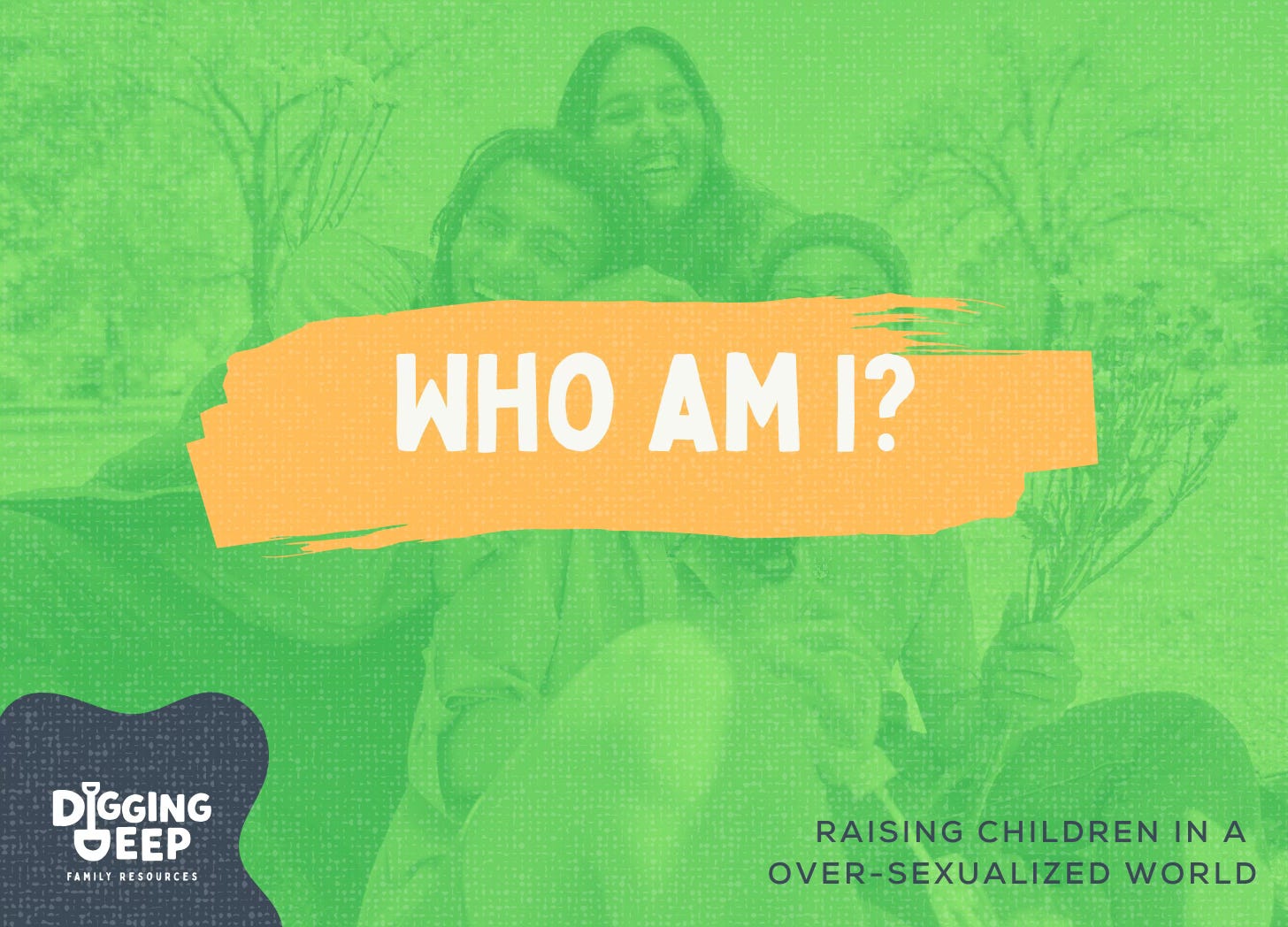Who Am I? Helping Our Children Build Their Identity in Christ
Faithful Parenting in a Sexualized World
This week was a busy one for me, so this post will be a bit on the shorter side. But here we go:
One of the most exhausting pressures our kids face today is the demand to define themselves. The world tells them their identity is something they must discover, express, and constantly curate.
Alan Noble puts it plainly:
“If I belong to myself, then I am the only one who can set limits on who I am or what I can do. No one else has the right to define me, to choose my journey in life, or to assure me that I am okay.”1
And because we’ve abandoned the idea of a God-given identity, our kids are left trying to make one up. Often, that means presenting a version of themselves that is lovable, impressive, or different enough to feel special.
You see it in social media personas, in fashion trends, in the obsession with being "authentic." But even authenticity has its limits. Our culture only applauds your authenticity when it fits the cultural script.
Tim Keller gives a helpful illustration. Imagine a young man in medieval Europe who finds inside himself to sinful impusles, he feels both violent and attracted to the same sex. At that cultural moment, he would most likely suppress the attraction and celebrate his aggression, because that’s what his culture celebrated as noble. Now fast forward to New York City today. That same young man would be encouraged to suppress his aggression and express his sexual desires.2
What changed? The heart? No, the cultural script did. When identity is rooted in the self, it becomes a game of choosing which feelings to validate based on what society applauds at the moment.
That’s why the pressure to be "your authentic self" is so heavy. It sounds freeing, but it’s actually another form of performance.
This is where Christian identity is so different.
Peter reminds believers:
“You are a chosen race, a royal priesthood, a holy nation, a people for his own possession… Once you were not a people, but now you are God’s people.” (1 Peter 2:9–10)
Our identity isn’t something we make up. It’s something we receive. We are created in God’s image, redeemed by Christ, and adopted into God’s family. That means our worth isn’t rooted in how we look, how we perform, or how others perceive us. It’s rooted in what God has done.
And if our kids don’t know that, they will spend their lives trying to earn it.
When identity becomes a project, even good things, like theology, interests, or political views, can just become more ways to define ourselves and compare ourselves to others. That’s why conversations online escalate so quickly. Disagreeing with someone’s opinion feels like attacking their core identity.
The solution isn’t to find a better identity within ourselves. It’s to receive the identity God has already given us in Christ.
Rebecca McLaughlin writes:
“If you are in Christ, you are loved not because of anything you’ve done, but because of what Jesus has done. You are not just accepted—you are adopted.”3
If our kids can rest in that truth, they will be less likely to fall for the lies that identity must be earned, customized, or performed.
So let’s remind them often:
You are made in the image of God.
You are loved by God.
You are not your own. You belong to Christ.
This isn’t just good theology. It’s good news for weary hearts.
In a world that equates identity with sexuality and demands self-definition above all else, grounding our kids in a Christ-centered identity is one of the most important things we can do. If we don’t disciple them in who they are, the culture will gladly do it for us, and the results will be devastating. Understanding their identity in Christ is not just helpful; it is essential if they’re going to stand firm in a culture that is constantly trying to redefine them. And as we’ll see next week, the pressure to invent your own purpose in life is just as overwhelming. But the gospel offers hope there too.
(This blog post is adapted from a class I originally taught at Trinity Community Church as part of our series on parenting in a sexualized world. Some content has been edited for readability and format, but the core material reflects the teaching and discussion from that session.)
Alan Noble, You Are Not Your Own: Belonging to God in an Inhuman World (IVP Books, 2021), 18.
Tim Keller, paraphrased from teachings on identity and culture, especially in Making Sense of God (Viking, 2016).
Rebecca McLaughlin, 10 Questions Every Teen Should Ask (and Answer) about Christianity (Crossway, 2021), 25.



